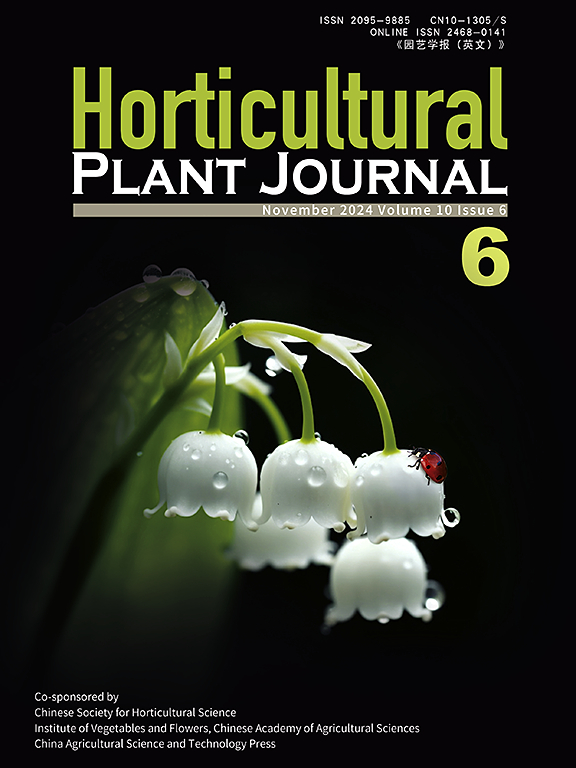植物SPL转录因子:一个潜在的胁迫调节因子
IF 6.2
1区 农林科学
Q1 HORTICULTURE
引用次数: 0
摘要
Squamosa启动子结合样蛋白(SPLs)是高等植物中普遍存在的转录因子,在植物对生物和非生物胁迫的响应中起着关键作用。大量实验证据表明,SPL TFs可以特异性结合胁迫相关基因启动子区的顺式元件,抑制或激活下游基因的表达,从而介导植物的适应性反应。本文综述了SPLs与microRNA、植物激素信号(吲哚-3-乙酸、水杨酸、茉莉酸甲酯、茉莉酸、脱落酸和赤霉素)、其他TFs (bHLH、WRKY、NAC、ZAT和CBF)以及胁迫条件下表观遗传调控之间相互作用机制的最新数据。本文综述了胁迫条件下植物SPL TFs的作用机制和表观遗传调控,并对今后研究的方向和挑战进行了展望,为进一步研究逆境条件下植物SPL TFs的分子机制和功能提供有益的见解。本文章由计算机程序翻译,如有差异,请以英文原文为准。
SPL transcription factors in plants: A potential stress regulator
Squamosa promoter binding-like proteins (SPLs) are ubiquitous transcription factors (TFs) in higher plants and play key roles in plant response to biotic and abiotic stresses. There is abundant experimental evidence that SPL TFs can specifically bind to cis -elements in the promoter region of stress-related genes to repress or activate the expression of downstream genes, thus mediating plant adaptive responses. Here, the review outlines recent data on the interaction mechanisms between SPLs and microRNA, phytohormonal signaling (indole-3-acetic acid, salicylic acid, methyl jasmonate, jasmonic acid, abscisic acid, and gibberellin), other TFs (bHLH, WRKY, NAC, ZAT, and CBF) and epigenetic regulation under stress conditions. This review systematically describes the action mechanisms of SPL TFs and epigenetic regulation in plants under stress condition and prospects the directions and challenges of future work, which provides useful insights for further investigation of the molecular mechanisms and functions of SPL TFs in plants under adverse environment.
求助全文
通过发布文献求助,成功后即可免费获取论文全文。
去求助
来源期刊

Horticultural Plant Journal
Environmental Science-Ecology
CiteScore
9.60
自引率
14.00%
发文量
293
审稿时长
33 weeks
期刊介绍:
Horticultural Plant Journal (HPJ) is an OPEN ACCESS international journal. HPJ publishes research related to all horticultural plants, including fruits, vegetables, ornamental plants, tea plants, and medicinal plants, etc. The journal covers all aspects of horticultural crop sciences, including germplasm resources, genetics and breeding, tillage and cultivation, physiology and biochemistry, ecology, genomics, biotechnology, plant protection, postharvest processing, etc. Article types include Original research papers, Reviews, and Short communications.
 求助内容:
求助内容: 应助结果提醒方式:
应助结果提醒方式:


